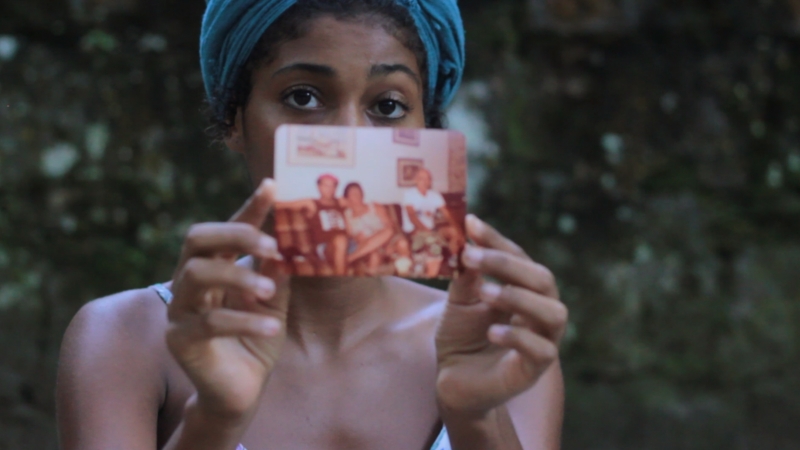Mostra Audiovisual de Cambuquira (MOSCA) is a film festival in Brazil which has curated a series of six short films for Glasgow Short Film Festival 2019. The programme highlights different minorities in Brazil and the struggles they face, with the screening beginning with an animation. Tower (Torre) (Brazil, 2017) directed by Nádia Mangolini uses hand-drawn images to present the perspective of four children who are separated from their father during a military dictatorship. The images fully convey the loneliness, torment and struggles that the children go through and express how powerful and potent animation can be when presenting gripping and emotive stories.
I Respect, But Don’t Accept It (Respeito, mas não aceito) (Brazil, 2017,) directed by Paola Fávaro, uses edited footage from Brazilian talk shows and daytime discussion programmes to investigate Brazil’s horrific engagement with LGBTQIA+ communities. Other than looking at representation or the prejudice that LGBT people face, they are ridiculed and mocked on television. The film edits this footage together and shows how negativity, disapproval and arrogance seem to take precedence over inclusion. The technique of using found footage underlines how outlandish and blind the perspective is and makes the film feel poignant and current.
Arara: a Film about a Surviving Film (Arara: um filme sobre um filme sobrevivente) (Brazil, 2017) directed by Lipe Canêdo and Travessia (Brazil, 2017) directed by Safira Moreira take a documentary-style approach to highlighting the representation of minorities and this perspective is pushed even further with Black Parallel Universe (Brazil, 2017). This short is directed by Rubens C. Pássaro Jr and looks at Brazil’s history with slavery and military dictatorships. Parallels are drawn and the use of illustrations and imagery provides a shocking and visceral narrative that holds the attention of the viewer.
The final film is a slow-paced drama called First Act (Primeiro Ato) (Brazil, 2018). The short is directed by Matheus Parizi and takes place during a theatre performance class. Two rebellious students contradict their passive and inert tutor and attempt to galvanise their classmates to take part in a protest. The parliament is due to pass a bill to cut arts funding and the students believe that this will greatly impact their future as artists. Their tutor and middle class classmates do not see things this way and a conflict ensues. The drama is heightened when we follow the pair to a protest within the parliament and question whether their activism is in vain. The selection of films during the Brazil: Luto para nós é verbo screening show diverse and important perspectives and also highlight the talents of contemporary Brazilian filmmakers.
